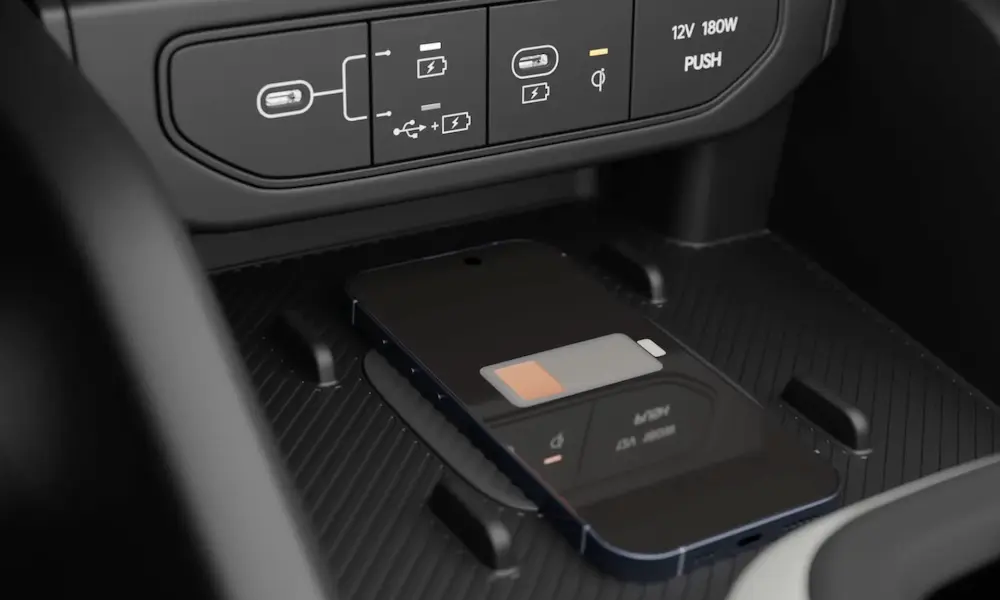The Kia Telluride, a popular midsize SUV, combines style with initial quality. Yet, it isn’t immune to issues. Some owners report engine problems that could impact your driving experience. From engine squealing to severe breakdowns, understanding these issues can help solve your problems. Stay informed and see how these problems relate to owner reviews. Keep reading to find solutions and improve your vehicle’s performance.
Common Engine Problems in the Kia Telluride
The Kia Telluride has several engine-related issues that owners report. These problems include excessive oil consumption, engine squealing during cold starts, ticking noises, and overheating. Understanding these issues can help you manage and potentially avoid costly repairs.
Excessive Oil Consumption
One common concern is excessive oil consumption. This can lead to frequent top-ups and increased maintenance costs. Drivers sometimes notice a warning light for low oil long before the next scheduled service. Regularly checking oil levels can help prevent engine damage.
This issue might affect driving performance, as low oil can reduce lubrication and increase engine wear. Consult your dealer if you experience this. Some models may require an inspection or a manufacturer update to fix the problem.
Cold Start Engine Squealing
Cold start engine squealing in the Telluride usually happens at lower temperatures. This noise can be unsettling, especially if you’re not expecting it. The squealing is often due to the belt tensioner or worn-out belts, which can lose tension when the engine is cold.
Although it usually stops after the engine warms up, regular maintenance can minimize this. If the squealing continues despite warmer temperatures, it may be time to have your vehicle checked by a mechanic. Catching this early can save on more extensive repairs later.
Engine Ticking Noise
You might hear a ticking noise coming from your Telluride’s engine at times. This often signals issues like engine ticking, caused by problems with lifters or low oil. Some drivers find this noise annoying but not necessarily damaging.
Using high-quality oil and ensuring it’s topped up can help keep this in check. If the ticking gets louder or starts affecting the vehicle’s performance, a mechanic should inspect it. Persistent ticking might indicate a need for more extensive repairs.
Engine Overheating
Engine overheating is another issue that can affect your Telluride. This might occur due to a faulty thermostat, a defective cooling system, or coolant leaks. Overheating can lead to severe engine damage if not addressed timely.
Monitoring the temperature gauge and maintaining coolant levels are crucial in preventing this. If your engine does overheat, turning off the AC and pulling over can help reduce damage. Let a professional diagnose the issue to ensure a proper fix.
Notable Complaints and Defect Patterns
The Kia Telluride has been receiving attention due to some recurring issues reported by owners. These include problems with software, electrical systems, emergency braking, and coolant leaks. Understanding these defects can help you make informed decisions about this vehicle.
Software Issues Leading to Failures
Many Telluride owners have noted failures that seem to be related to software glitches. These software issues often affect the vehicle’s instrument panel, leading to incorrect displays or errors. Dealers usually address this by updating the instrument panel firmware, which is provided at no cost.
These problems can be frustrating, as they may lead to misjudgments while driving. If you experience such problems, it’s important to visit your dealer. A proper update can usually resolve the problem, allowing for a smoother driving experience without these disruptions.
Electrical System Malfunctions
Electrical issues are another concern for Kia Telluride owners. Complaints about the vehicle’s electrical system usually involve malfunctioning headlights and problems with other electronic components. Such problems can stem from faulty wiring or defective parts.
Fixing these problems usually requires a visit to the dealership, where technicians can diagnose and replace any faulty components. It’s crucial to address these issues early to avoid more serious problems later. A well-functioning electrical system ensures that all features work as expected, contributing to a safer drive.
Emergency Braking Concerns
The Telluride’s emergency braking system is designed to enhance safety. However, there have been complaints about its functionality. Some drivers have reported unexpected braking or failure to engage during emergencies. This can pose significant risks if not handled properly.
If you experience issues with emergency braking, consult your dealer. They can inspect and, if necessary, recalibrate the system to ensure it operates reliably. A well-functioning system is vital for both your safety and the safety of others on the road.
Coolant Leak Risks
Coolant leaks are a more serious concern for some Telluride owners. Leaks can lead to overheating and significant engine damage if not addressed promptly. These issues could be due to faulty seals or connected parts within the cooling system.
To prevent damage, regularly inspect your vehicle for signs of leaks, such as puddles under the car or a sweet smell. If you suspect a leak, take your vehicle to a professional who can identify and fix the problem. Early intervention can save you from costly repairs and keep your engine running smoothly.
Severe Engine Failures and Recall Information
Kia Telluride has faced notable engine problems, including severe engine failures leading to recalls. These issues have caught the attention of the National Highway Traffic Safety Administration (NHTSA) due to potential safety risks, such as fire hazards.
Kia Telluride Engine Failure Cases
Some 2024 Kia Tellurides have experienced critical issues with their engines. Reports indicate that faulty valve springs can lead to sudden engine failures. These problems may cause the engine to stop running unexpectedly, which could be dangerous, especially when driving at high speeds.
Owners have noted peculiar sounds, like a high-pitched squeal, when starting the vehicle in cold weather. This might be an early indicator of engine trouble. If you own a Kia Telluride and notice any unusual engine noises, it might be time for a check-up.
Recalls Over Safety Risks
Kia issued a recall for certain Telluride models due to the identified risk of engine failure. The recall affects vehicles made between October 1, 2023, and December 6, 2023. These models could have faulty valve springs that may result in severe engine damage and potential fire hazards.
Kia has committed to fixing the problem by replacing the engine sub-assembly at no cost. Owners were to receive notification letters by April 2024. If you own an affected model, it’s crucial to contact Kia customer service. For further details, you can check the official recall information.
Issues Reported in Specific Model Years
When looking at the Kia Telluride, certain model years have had specific issues. The 2020 model, for example, has faced some engine-related challenges such as rough idling and transmission issues.
2020 Kia Telluride Engine Challenges
If you’re looking at the 2020 Kia Telluride, be aware of some engine problems that might come up. Owners have reported transmission troubles, including rough shifting of the 8-speed automatic transmission, which can affect driving comfort and efficiency.
Some drivers have also noticed engine misfires in the 2020 Kia Telluride. This can lead to rough idling which affects drivability. Possible causes include faulty spark plugs. Websites like CarComplaints and others document these issues, helping you understand what vehicle problems to expect. Keeping an eye on these potential problems can help in dealing with them promptly.
Maintenance Tips and Preventative Measures
To keep your Kia Telluride running smoothly and avoid common engine problems, it is essential to focus on regular maintenance. Paying attention to oil levels and ensuring the cooling system is in good condition can help prevent issues like excessive vibration and an engine failing to start.
Regular Oil Checks and Changes
Regular oil checks and changes are crucial for a healthy engine. It’s vital to check the oil level every month and top it off if needed. Changing the oil every 5,000 to 7,500 miles helps maintain engine efficiency and reduces wear and tear. Clean oil can prevent problems such as engine misfires and ensure smooth operation.
You might consider using high-quality synthetic oil for better performance. If you notice excessive vibration, it may be a sign that it’s time for an oil change. Always replace the oil filter along with the oil to keep contaminants out of the engine.
Cooling System Maintenance
Maintaining the cooling system is key to avoiding overheating, which can cause severe engine damage. Start by checking the coolant level regularly and ensuring there are no leaks. If the radiator fan issue arises, it could lead to overheating; thus, it’s important to address it immediately.
Check hoses and the radiator for signs of wear or leaks. Flushing the cooling system according to the manufacturer’s schedule helps keep it in top condition. By maintaining this system, you reduce the risk of your engine overheating and enhance your car’s reliability.














